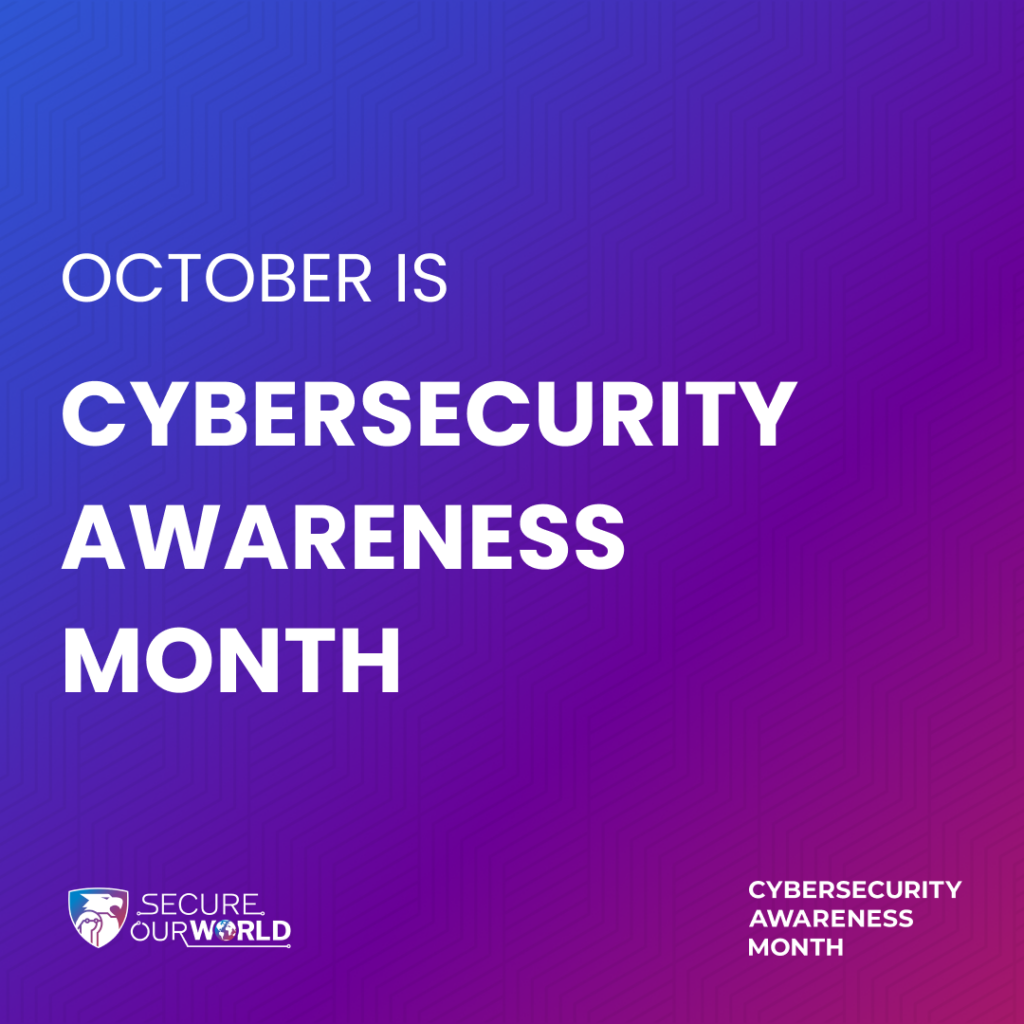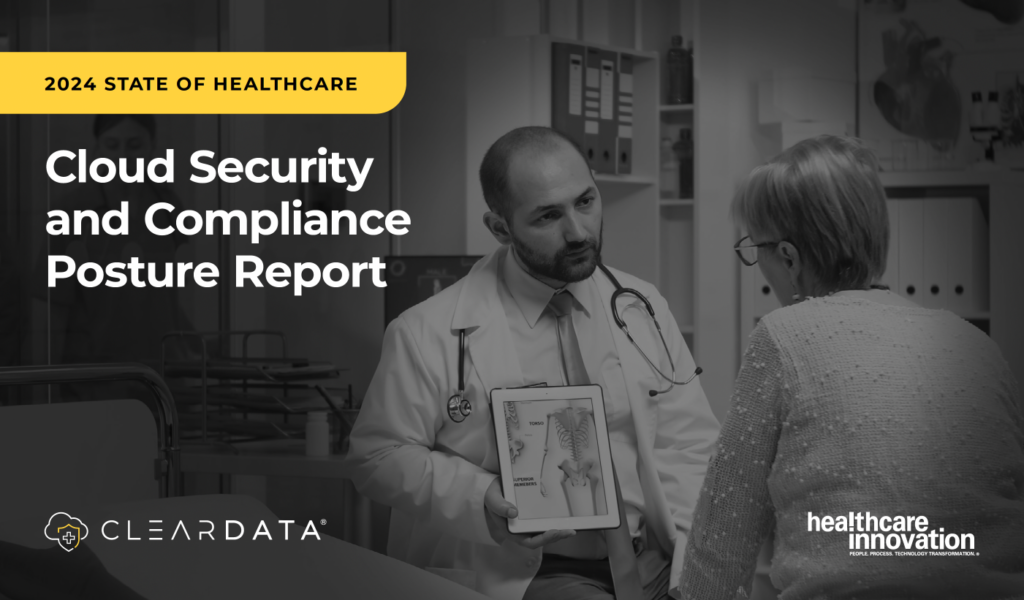Reducing Successful Cyber Attack Vectors: Key Strategies This National Cybersecurity Awareness Month
October marks National Cybersecurity Awareness Month, an initiative that’s grown in significance since its inception in 2004. The U.S. Department of Homeland Security and the National Cybersecurity Alliance launched this month-long observance to educate and engage the public about the importance of cybersecurity. Over the years, it has evolved to address the growing complexity and interconnectedness of our digital world, emphasizing that individuals, businesses, and government entities share the responsibility to safeguard cyberspace.
While all companies in all industry sectors should ensure proper cybersecurity hygiene, healthcare organizations must take extra precautions.
Healthcare organizations are responsible for protecting vast amounts of sensitive patient data, including personal health information (PHI), while adhering to stringent regulations such as HIPAA and HITRUST. With fragmented technology infrastructure spanning multiple cloud environments and a constant need to innovate, maintaining a compliant and secure posture is a monumental task.
Recent Healthcare Cybersecurity Incidents
Just recently, healthcare has fallen victim to major security breaches, highlighting the need for increased vigilance and proactive measures to protect sensitive information. In February 2024, Change Healthcare suffered a cyberattack by the BlackCat ransomware group, disrupting services for hospitals, pharmacies, and medical billing companies nationwide. Another recent incident in April 2024 where Kaiser Permanente faced a data breach that exposed the Protected Health Information (PHI) due to an embedded tracking code on their web pages and apps. Unfortunately, the
While many data breaches can be significant, the scale and impact of the breach on patient safety often remains unconfirmed long after the incidents. They serve as a reminder that cybersecurity shouldn’t be taken lightly, and businesses of all sizes must take essential steps to avoid pitfalls that could lead to vulnerabilities in an organization’s cybersecurity posture.
Risks Of Poor Cloud Security in Healthcare
Regrettably, threats to healthcare continue to escalate as malicious actors employ increasingly sophisticated techniques to breach security systems.
- Data Breaches: Weak security systems can lead to unauthorized access, resulting in the exposure of sensitive patient information. This not only compromises confidentiality, but also increases the risk of identity theft and fraud.
- Loss of Patient Trust: Patients expect their personal and medical information to be secure. A security breach can erode this trust, leading to a loss of patient confidence and possibly driving them to seek care elsewhere.
- Financial Penalties: Healthcare organizations are subject to regulations like HIPAA, which mandate stringent data protection measures. Non-compliance due to weak security can result in hefty fines and financial penalties, impacting the organization’s bottom line.
- Operational Disruptions: Cyber-attacks can disrupt healthcare operations, potentially delaying critical medical procedures and affecting patient care. Ransomware attacks can cripple healthcare facilities by locking critical systems and demanding payment for restoration.
- Legal Liabilities: A security breach can lead to legal action from affected patients or partners. The cost of legal defense, settlements, and potential compensation can be substantial.
- Impact on Patient Safety: Compromised medical records or unauthorized access to sensitive health information can directly affect patient safety. For instance, altered medical records could lead to incorrect treatments or medications being administered.
- Reputational Damage: The fallout from a security breach can severely damage an organization’s reputation. Negative media coverage and public perception can lead to a loss of business and hinder future opportunities.
- Long-term Effects on Credibility and Stability: Repeated security incidents can undermine an organization’s credibility and erode stakeholder confidence. Over time, this can impact the organization’s financial stability and growth prospects.

Reducing Successful Cyber Attack Vectors
Reducing successful cyber-attack vectors in the healthcare sector requires a comprehensive approach that incorporates both robust technology and strategic planning. Your organization should consider:
- Regular Software Updates: Ensure all systems and applications are up-to-date with the latest security patches to protect against known vulnerabilities.
- Employee Training: Conduct regular cybersecurity awareness training to educate employees about phishing, social engineering, and other common attack methods.
- Multi-Factor Authentication (MFA) In Healthcare: Implement MFA to add an extra layer of security, making it harder for attackers to gain unauthorized access.
- Network Segmentation: Divide the network into segments to limit the spread of malware and restrict access to sensitive data.
- Strong Password Policies: Enforce strong, unique passwords and encourage regular password changes.
- Intrusion Detection and Prevention Systems (IDPS): Deploy IDPS to monitor network traffic for suspicious activity and respond to potential threats in real-time.
- Data Encryption: Encrypt sensitive data both in transit and at rest to protect it from unauthorized access.
- Regular Security Audits: Conduct regular security audits and vulnerability assessments to identify and address potential weaknesses.
- Incident Response Plan: Develop and regularly update an incident response plan to ensure quick and effective action in the event of a breach.
- Access Controls: Implement strict access controls to ensure that only authorized personnel have access to critical systems and data.
The growing number of cyber threats highlights the necessity for healthcare organizations to regularly update their security measures and treat every month like cybersecurity awareness month.
Ensuring Healthcare Data Security
The Cybersecurity and Infrastructure Security Agency (CISA) plays a pivotal role in promoting cybersecurity awareness and resilience. One of the critical aspects of cybersecurity in healthcare is understanding and implementing robust cybersecurity best practices. CISA outlines several foundational steps that can significantly reduce the risk of cyberattacks.
As we observe National Cybersecurity Awareness Month, let’s commit to making cybersecurity a cornerstone of healthcare operations, safeguarding the well-being of patients and the integrity of their sensitive information.
Reach out to a healthcare cybersecurity expert today.
FAQ
Why is cybersecurity crucial for healthcare organizations?
Cybersecurity is crucial for healthcare organizations due to their management of sensitive patient data, making them targets for cyberattacks. Protecting this information ensures compliance with regulations like HIPAA and maintains patient trust. Weak cybersecurity can result in legal issues, financial penalties, and potentially jeopardize patient safety through compromised medical records.
What are the key strategies to reduce cyberattack risks in healthcare?
Healthcare organizations can significantly reduce their risk of successful cyberattacks by implementing several key strategies:
- Regular Software Updates: Ensure all systems are up-to-date with the latest security patches.
- Employee Training: Educate staff on common cyberattack methods like phishing.
- Multi-Factor Authentication (MFA): Add extra layers of security to prevent unauthorized access.
- Data Encryption: Encrypt sensitive data in transit and at rest to prevent unauthorized access.
- Network Segmentation: Divide networks to limit the spread of malware and control access. By adopting these measures, healthcare organizations can better protect their systems, reduce vulnerabilities, and ensure compliance with stringent regulations.
What are the consequences of poor cloud security in healthcare?
Poor cloud security in healthcare can have severe consequences, including:
- Data Breaches: Unauthorized access to sensitive data can lead to identity theft and fraud.
- Loss of Patient Trust: Breaches erode trust, leading patients to seek care elsewhere.
- Financial Penalties: Non-compliance with regulations like HIPAA can result in hefty fines.
- Operational Disruptions: Cyberattacks can delay critical healthcare services.
- Legal Liabilities: Healthcare organizations may face legal action from affected patients.
- Reputational Damage: Public trust and business opportunities may decline after a breach. By strengthening cloud security, healthcare organizations can mitigate these risks and protect patient information more effectively.
Ready to augment your healthcare cybersecurity expertise?


